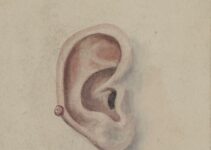Do you find it hard to unwind and relax because of the constant ringing in your ears? Tinnitus can be an overwhelming condition to deal with, but there may be a solution that can relieve your symptoms. In this blog post, we'll explore some effective tinnitus relief sounds that may help you find the peace and quiet you've been searching for. Whether you're looking for natural remedies or ways to incorporate sound therapy into your daily routine, keep reading to discover how you can finally unwind and relax despite tinnitus.
Understanding Tinnitus: Causes and Symptoms
Tinnitus relief sounds can be a helpful tool for managing the symptoms of tinnitus, a condition characterized by ringing, buzzing, or other noises in the ears. To understand how these sounds work, it's important to first understand the causes and symptoms of tinnitus.
Tinnitus can be caused by a variety of factors, including exposure to loud noises, ear infections, and even stress. Symptoms can range from mild to severe and may include difficulty sleeping, trouble concentrating, and anxiety.
While there is no cure for tinnitus, finding effective relief is crucial for managing symptoms and improving quality of life. Tinnitus relief sounds work by providing a soothing background noise that can help mask the ringing or buzzing in the ears.
By incorporating these sounds into your daily routine, you can unwind and relax while also managing your tinnitus symptoms. With expert tips and guidance, you can maximize the effectiveness of these sounds and find long-term relief from tinnitus through sound therapy.
The Importance of Finding Effective Tinnitus Relief
Tinnitus is a common condition that affects millions of people worldwide. It is characterized by the perception of sound in the absence of any external noise source. Common symptoms include ringing, buzzing, hissing or whistling sounds in one or both ears. Tinnitus can be caused by a variety of factors including exposure to loud noises, ear infections and hearing loss.
Finding effective tinnitus relief is crucial for those who suffer from this condition. Living with tinnitus can be frustrating and disruptive to daily life, causing stress and anxiety. Fortunately, there are several options available for tinnitus relief including sound therapy.
Sound therapy works on the principle of using sound to mask or distract from the perceived sounds of tinnitus. By listening to soothing sounds such as white noise or nature sounds, individuals may find relief from their symptoms and experience improved quality of life.
It's important to note that while tinnitus relief sounds may provide temporary relief, they should not replace medical treatment for underlying conditions associated with tinnitus. Consulting a healthcare professional is essential for proper diagnosis and management of this condition.
How Tinnitus Relief Sounds Work to Alleviate Symptoms
Tinnitus relief sounds work by masking the ringing or buzzing in your ears with more pleasant sounds. White noise is a popular type of sound used for tinnitus relief as it provides a consistent and soothing background sound. Another popular type of sound is pink noise, which has been found to help improve sleep quality and reduce stress levels, both of which can exacerbate tinnitus symptoms.
In addition to white and pink noise, other types of sounds that are effective for tinnitus relief include nature sounds such as ocean waves or rain, gentle instrumental music like classical or ambient tracks, and binaural beats that stimulate brain activity and promote relaxation.
It's important to note that not all tinnitus sufferers respond well to the same types of sounds, so it may take some trial-and-error experimentation to find the right combination of sounds that work best for you. However, incorporating these different types of tinnitus relief sounds into your daily routine can provide much-needed relief from persistent symptoms.
Top 5 Tinnitus Relief Sounds to Help You Unwind and Relax
Ocean Waves: The Soothing Sound of the Sea for Tinnitus Relief
Ocean waves are a popular choice for tinnitus relief sounds due to their calming and soothing effect on the mind and body. The sound of waves crashing against the shore creates a natural white noise that can help mask the ringing or buzzing sounds associated with tinnitus. Listening to ocean waves can also promote relaxation and reduce stress levels, which can exacerbate tinnitus symptoms. Incorporating ocean wave sounds into your daily routine, such as during meditation or before bed, can provide relief from tinnitus and improve overall sleep quality. Try listening to ocean wave sounds through headphones for maximum effectiveness.
Nature Sounds: Experience the Calming Effects of Forests and Birds on Tinnitus
Nature sounds, such as forest and bird sounds, have been found to be effective in providing relief for tinnitus sufferers. The calming effects of nature sounds can help reduce stress and anxiety, which are known to exacerbate tinnitus symptoms. Listening to recordings of forests and birds can also provide a distraction from the ringing or buzzing in the ears, making it easier to relax and fall asleep. Many tinnitus relief sound apps and websites offer a variety of nature sound options, allowing you to customize your listening experience. Try incorporating nature sounds into your daily routine for a soothing and natural way to manage tinnitus symptoms.
White Noise: How a Simple Static Sound can Mask Your Tinnitus Symptoms
white noise and tinnitus relief sounds
White noise is a common tinnitus relief sound that can be incredibly effective in masking the symptoms of tinnitus. This simple static sound works by providing a consistent background noise that distracts your brain from focusing on the ringing or buzzing sounds associated with tinnitus. White noise machines are widely available, but you can also listen to white noise tracks online or use apps specifically designed for tinnitus relief. Experiment with different types of white noise, such as pure white noise, pink noise, or brown noise, to find what works best for you. Use it at night while sleeping or during the day when working or relaxing to help alleviate your symptoms and unwind.
Meditation Music: Add Rhythmic Relaxation to Your Daily Routine with These Tracks
Meditation Music: Add rhythmic relaxation to your daily routine with these tracks that are specifically designed for tinnitus relief. Soothing sounds and frequencies can help to decrease stress levels, which in turn can alleviate the symptoms of tinnitus. Look for tracks that incorporate nature sounds such as flowing water or bird songs, as well as slow and steady beats that have an almost hypnotic effect on the mind. This type of music is perfect for incorporating into meditation sessions or simply playing softly in the background while you work or relax at home. Try out different tracks until you find a few favorites that really put you at ease.
How to Incorporate Tinnitus Relief Sounds into Your Daily Routine
Incorporate Tinnitus Relief Sounds into Your Daily Routine
Incorporating tinnitus relief sounds into your daily routine can be an effective way to manage your symptoms and promote relaxation. One of the easiest ways to do this is by listening to tinnitus relief sounds while you sleep. This can help mask the ringing or buzzing in your ears and promote a more restful night's sleep.
Another way to incorporate these sounds into your daily routine is by using them during meditation or yoga practice. By focusing on the sounds and allowing them to soothe you, you can reduce stress and anxiety, which can exacerbate tinnitus symptoms. You can also listen to these sounds while doing other relaxing activities such as reading or taking a bath.
It's important to note that consistency is key when using tinnitus relief sounds for long-term relief. Make it a habit to listen to these sounds at the same time each day, whether it's before bed or during your morning routine. With time and practice, incorporating these sounds into your daily routine can become a natural part of your self-care regimen.
The Benefits of Using Tinnitus Relief Sounds for Stress Management
Understanding the Connection Between Tinnitus and Stress
Stress is known to worsen the symptoms of tinnitus, and can even be a contributing factor in developing the condition. The constant ringing or buzzing sound can cause frustration and anxiety, leading to increased levels of stress. This negative cycle can make it difficult for individuals with tinnitus to relax and unwind. Therefore, using tinnitus relief sounds that are designed specifically for stress management can be extremely beneficial. These sounds help to ease tension in the body and mind, promote relaxation, and create a peaceful environment that supports healthy habits such as meditation or mindfulness practices. Incorporating these sounds into your daily routine can provide long-term relief from tinnitus-related stress.
How Tinnitus Relief Sounds Can Help Manage Stress Levels
Tinnitus relief sounds can be incredibly beneficial for managing stress levels. The calming nature of these sounds can help reduce anxiety and promote relaxation, which in turn can lower stress levels. Additionally, listening to tinnitus relief sounds can help distract from the constant ringing or buzzing in the ears that tinnitus sufferers experience, allowing for a more peaceful state of mind. Incorporating these sounds into a daily routine can provide a sense of control over tinnitus symptoms and reduce the negative impact they have on overall well-being. Overall, using tinnitus relief sounds for stress management is a simple yet effective way to improve quality of life for those with tinnitus.
The Science Behind the Effectiveness of Tinnitus Relief Sounds
Tinnitus relief sounds not only alleviate the symptoms of tinnitus but also have significant benefits for stress management. The sound therapy works by stimulating the auditory system and promoting relaxation, which in turn reduces stress levels. Research has shown that using tinnitus relief sounds can lower cortisol levels, decrease heart rate, and improve sleep quality. The key to its effectiveness lies in the brain's ability to focus on the sounds and tune out other distractions. By doing so, it promotes a state of calmness and relaxation, which is essential for managing stress. Incorporating tinnitus relief sounds into your daily routine can help you feel more relaxed and centered throughout the day.
Exploring Different Types of Tinnitus Relief Sounds for Relaxation
White noise and nature sounds are two effective types of tinnitus relief sounds that can be used for relaxation. White noise is a type of sound that contains all frequencies in the audible range, creating a static-like sound. It is particularly helpful for drowning out unwanted background noise and providing calmness to help relax your mind.
Nature sounds, on the other hand, mimic natural environments such as forests or oceans. These types of sounds provide an immersive experience that can promote relaxation and stress reduction by creating a peaceful atmosphere.
Other popular tinnitus relief sounds include pink noise, brown noise, and ambient music. Experiment with different types to find what works best for you in alleviating symptoms of tinnitus while promoting overall well-being.
Expert Tips for Maximizing the Effectiveness of Tinnitus Relief Sounds
-
Use high-quality headphones or speakers: To fully experience the benefits of tinnitus relief sounds, it's important to use high-quality headphones or speakers. This will ensure that you're getting the full range of frequencies and that the sound is clear and crisp.
-
Experiment with different sounds: Everyone's tinnitus is different, so it's important to experiment with different types of sounds to find what works best for you. Some people find relief with white noise, while others prefer nature sounds or music.
-
Set aside dedicated time for sound therapy: Incorporating tinnitus relief sounds into your daily routine can be a powerful tool for managing stress and reducing symptoms. Set aside dedicated time each day to listen to your chosen sounds and make it a part of your self-care routine.
-
Combine sound therapy with other relaxation techniques: Tinnitus relief sounds can be even more effective when combined with other relaxation techniques such as deep breathing, meditation, or yoga. Experiment with different combinations to find what works best for you.
-
Be patient and consistent: Like any form of therapy, tinnitus relief sounds may take time to show results. Be patient and consistent in your practice, and don't give up if you don't see immediate improvement. With time and dedication, sound therapy can be a powerful tool for managing tinnitus symptoms and improving overall well-being.
Conclusion: Finding Long-Term Relief from Tinnitus with Sound Therapy
While tinnitus relief sounds can be effective in providing temporary relief, it is important to seek long-term solutions for managing this condition. Sound therapy has been shown to be an effective treatment option for reducing the severity and frequency of tinnitus symptoms over time. This involves using customized soundscapes that are tailored to each individual's specific needs.
In addition to sound therapy, lifestyle modifications such as avoiding loud noises and practicing stress-management techniques can also help alleviate symptoms of tinnitus. It is important to work with a healthcare professional who specializes in treating tinnitus to develop a personalized treatment plan.
Remember that finding relief from tinnitus takes time and patience, but there are options available that can provide significant improvement in quality of life. Don't suffer silently – reach out for help and explore different treatment options until you find what works best for you.
In conclusion, tinnitus can be a frustrating and debilitating condition, but there are effective ways to manage its symptoms. Tinnitus relief sounds have been shown to be a powerful tool in alleviating the stress and anxiety associated with tinnitus. By incorporating these sounds into your daily routine, you can unwind and relax, improving your overall quality of life.
Remember to experiment with different sounds and find what works best for you. Additionally, don't hesitate to seek out professional help if your tinnitus is severe or impacting your daily life.
We hope this article has been helpful in understanding the benefits of tinnitus relief sounds and how they can be incorporated into your daily routine. For more information on tinnitus relief and other related topics, be sure to check out our other content. Take care of yourself and your hearing health!
Questions
Who can benefit from tinnitus relief sounds?
Anyone suffering from tinnitus symptoms.
What are tinnitus relief sounds?
Sounds that help mask the ringing in the ears.
How do tinnitus relief sounds work?
By distracting the brain from the tinnitus noise.
What if tinnitus relief sounds don't work for me?
There are other treatments available, speak to a doctor.
How often should I listen to tinnitus relief sounds?
As often as needed to alleviate symptoms.
Who should I talk to about using tinnitus relief sounds?
A doctor or audiologist can provide guidance.
{“@context”:”https://schema.org”,”@type”:”FAQPage”,”mainEntity”:[{“@type”: “Question”, “name”: “Who can benefit from tinnitus relief sounds? “, “acceptedAnswer”: {“@type”: “Answer”, “text”: “Anyone suffering from tinnitus symptoms.”}}, {“@type”: “Question”, “name”: “What are tinnitus relief sounds? “, “acceptedAnswer”: {“@type”: “Answer”, “text”: “Sounds that help mask the ringing in the ears.”}}, {“@type”: “Question”, “name”: “How do tinnitus relief sounds work? “, “acceptedAnswer”: {“@type”: “Answer”, “text”: “By distracting the brain from the tinnitus noise.”}}, {“@type”: “Question”, “name”: “What if tinnitus relief sounds don't work for me? “, “acceptedAnswer”: {“@type”: “Answer”, “text”: “There are other treatments available, speak to a doctor.”}}, {“@type”: “Question”, “name”: “How often should I listen to tinnitus relief sounds? “, “acceptedAnswer”: {“@type”: “Answer”, “text”: “As often as needed to alleviate symptoms.”}}, {“@type”: “Question”, “name”: “Who should I talk to about using tinnitus relief sounds? “, “acceptedAnswer”: {“@type”: “Answer”, “text”: “A doctor or audiologist can provide guidance.”}}]}





